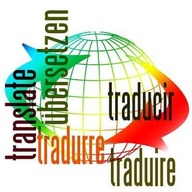The Earth is the third planet from the Sun and the only known celestial body to support life. It is a dynamic, vibrant world filled with diverse ecosystems, vast oceans, and complex atmospheres that sustain billions of species, including humans. Understanding Earth is essential to appreciating our place in the universe and fostering responsible stewardship for future generations.
Earth: Information on Earth?
Earth is a terrestrial planet with a diameter of about 12,742 kilometers and an average distance of 149.6 million kilometers from the Sun. It has a layered structure consisting of a core, mantle, and crust, surrounded by an atmosphere composed mainly of nitrogen and oxygen. Earth’s unique combination of water, atmosphere, and geological activity creates a stable environment for life to thrive. The planet exhibits diverse climates, ranging from polar ice caps to tropical rainforests, and experiences natural processes like plate tectonics, volcanism, and weather cycles.
Legacy
Earth’s legacy is vast and complex, shaped by billions of years of natural evolution and geological transformation. It is the cradle of human civilization and culture, housing countless ecosystems and species that contribute to the planet’s biodiversity. Earth’s environmental systems have influenced art, science, philosophy, and technology throughout human history. Preserving this legacy is critical as humanity faces challenges like climate change, habitat loss, and resource depletion, emphasizing the need for sustainable living and global cooperation.
Earth: What people say about it?
People worldwide often describe Earth as a beautiful and fragile home, a unique blue planet floating in the cosmic expanse. Many see it as a gift to be protected, inspiring movements focused on environmental conservation and climate action. There are diverse cultural perspectives highlighting Earth’s spiritual significance, its role in mythology, and its importance as shared heritage. Discussions about Earth also reflect concerns about human impact and the urgent need to balance development with environmental care.
Where to find out more?
To learn more about Earth, a variety of resources are available including scientific institutions, environmental organizations, and educational platforms. Museums, planetariums, and nature reserves provide hands-on learning experiences. Online resources from space agencies, geological surveys, and universities offer up-to-date research and interactive tools that explore Earth’s geology, climate, and ecosystems. Engaging with documentaries, books, and community projects can also deepen understanding and appreciation of our planet.
Earth Summary
Earth is our home — a vibrant, living planet with incredible diversity and a legacy worth protecting. Let's cherish and safeguard our unique world together! #Earth #OurPlanet #Sustainability



